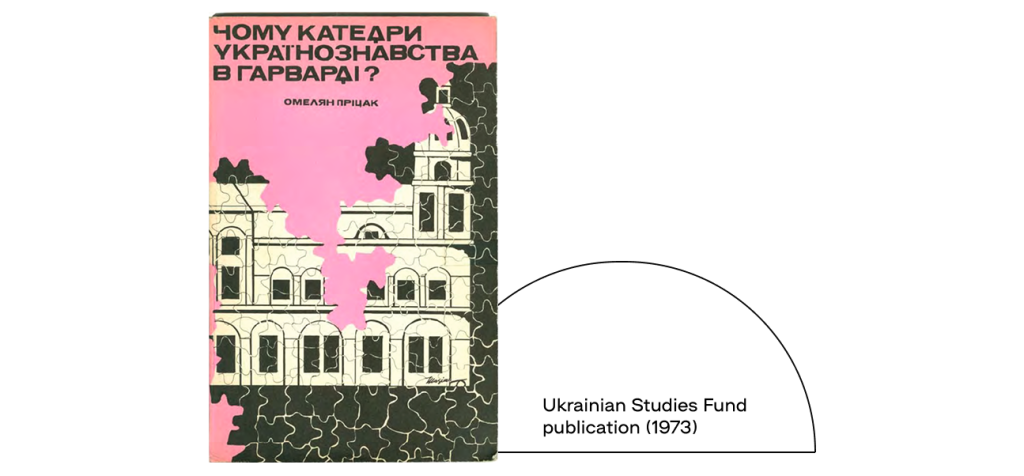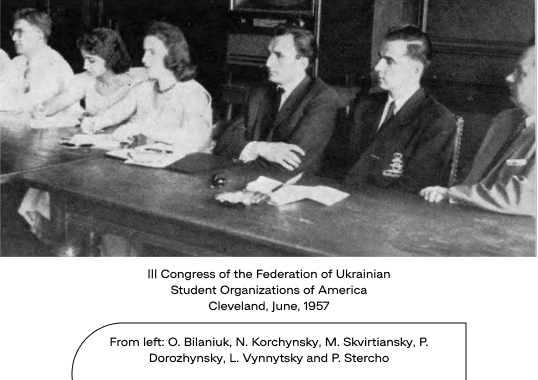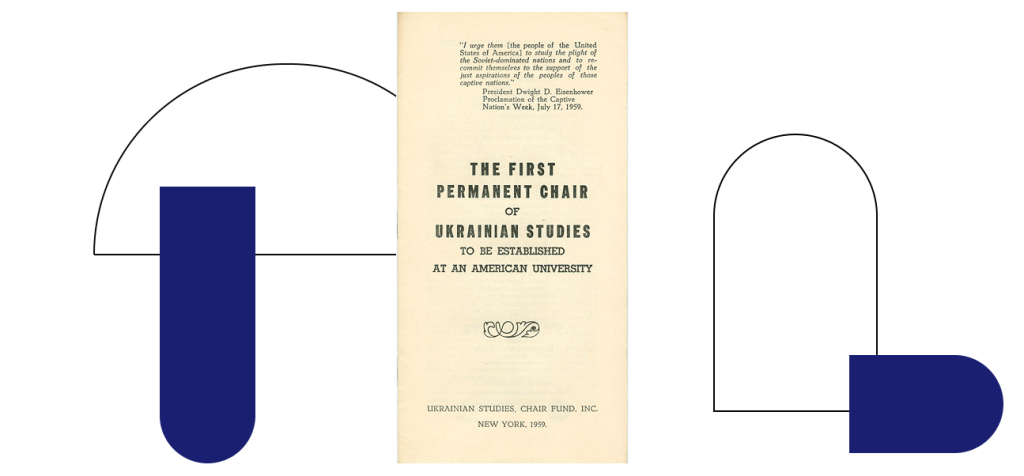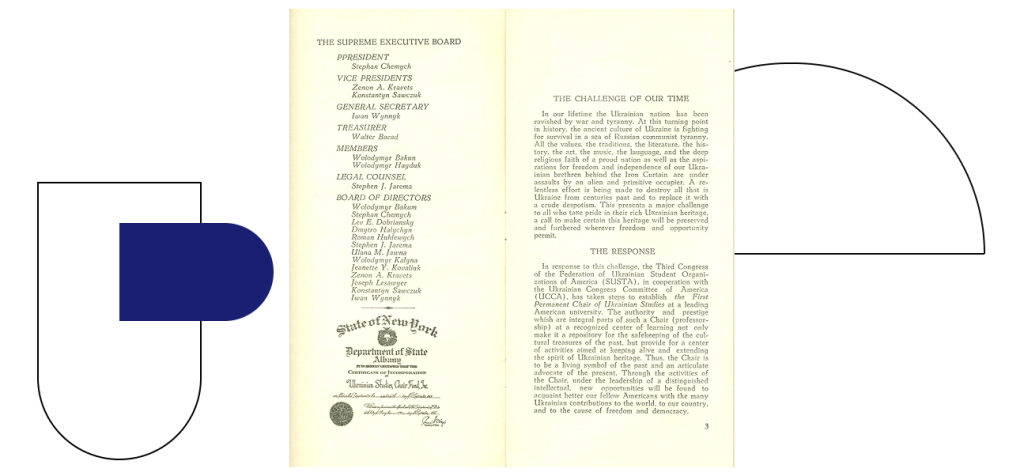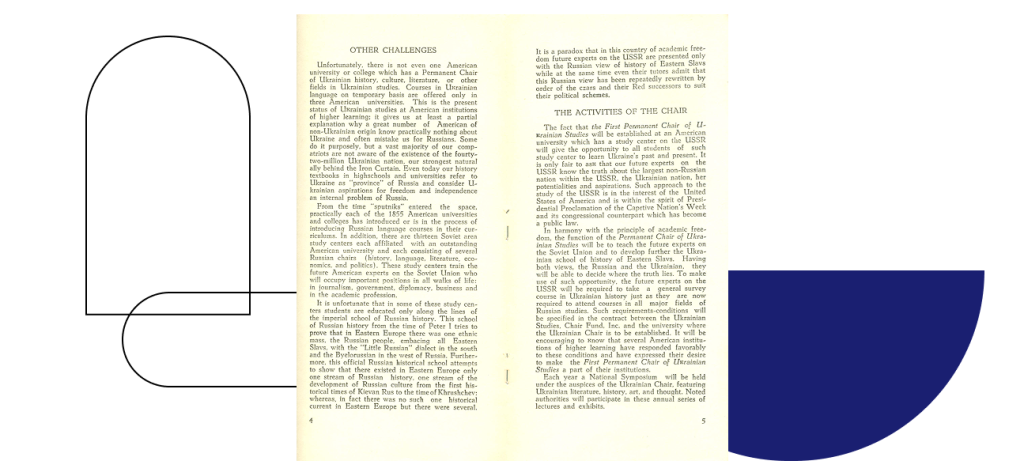The origin of Ukrainian Studies at Harvard dates back to 1957, when the Federation of Ukrainian Student Organizations of America (SUSTA) proposed to endow a chair in Ukrainian Studies at a leading American university as a means of preserving and advancing Ukrainian scholarship. In 1962 the Ukrainian Studies Fund was incorporated and started fundraising efforts toward endowing a chair at an American university. By 1967, $280,000 had been raised for the undertaking by the Ukrainian Studies Fund at which point a Council of Academic Advisers was convened ̶ a body of Ukrainian professors from various American colleges and universities ̶ and they selected Harvard as the institution best suited for a program of Ukrainian Studies, particularly because of its strong tradition in East European and Soviet studies.
Additional funds were raised to meet the $600,000 endowment required for a chair at Harvard, and on January 22nd, 1968, a chair in Ukrainian history was established at the University. An ad hoc Committee on Ukrainian Studies was appointed by the Dean of the faculty of Arts and Sciences to supervise and coordinate the activities of the Ukrainian Studies Program. The ad hoc Committee formulated a plan to endow additional chairs in Ukrainian literature and language, to organize a publishing program, to expand the library collection, to introduce Ukrainian courses at the Harvard Summer School, and to establish a research institute. During the academic year 1968-69, courses in Ukrainian studies were offered by several Harvard departments. Ad hoc programs of study were set up to prepare a new generation of scholars in Ukrainian Studies. Funds were allocated for the expansion of library holdings, and the first volume of the Harvard Series in Ukrainian Studies was published.
Chairs in Ukrainian literature and language were endowed in January 1973, and the Harvard Ukrainian Research Institute (HURI) was established in June of that year. The main objectives of the Institute were to support basic research projects and to provide annotated bibliographies and teaching materials in Ukrainian history, literature and language. Professors on sabbatical leave from other universities and qualified researchers were invited to cooperate in this effort with the associates of the Institute. Currently the Institute mission is “To advance knowledge of Ukraine through teaching, research, and publication in the humanities and the social sciences at Harvard and worldwide.” (HURI website) Since the renewal of Ukraine’s independence in 1991, the Institute has broadened its scope to include contemporary topics important to an understanding of a modern Ukraine.
A significant milestone occurred in 1974 for Ukrainian Studies at Harvard, it marked the completion of the formal structure of the program at the University. The Faculty of Arts and Sciences voted that the ad hoc Committee on Ukrainian Studies be superseded by a Standing Committee appointed by the President of the University. The formation of a Visiting Committee of the Ukrainian Research Institute represented yet another step in the integration of Ukrainian Studies within the University. The Visiting Committee reported to the Board of Overseers ̶ one of the University’s two central governing boards ̶ on how effectively the Institute was pursuing its goals. Seven years after the establishment of a chair in Ukrainian history at Harvard, the Board of Overseers confirmed the appointment of Professor Omeljan Pritsak as the first Mykhailo S. Hrushevsky Professor of Ukrainian history, effective July 1, 1975.
Since its inception in 1968, the Ukrainian Studies Program at Harvard has created an opportunity for many scholars beyond the Harvard community to utilize the considerable resources that have been developed at the University. The Ukrainian Research Institute has hosted a few hundred research associates, fellows and graduate students from universities around the world. Specialists in economics, political science, anthropology, art history, archaeology, sociology, theology and many other disciplines have worked under the aegis of the Harvard Ukrainian Research Institute, and have substantially broadened and diversified the dimensions of Ukrainian Studies worldwide.
